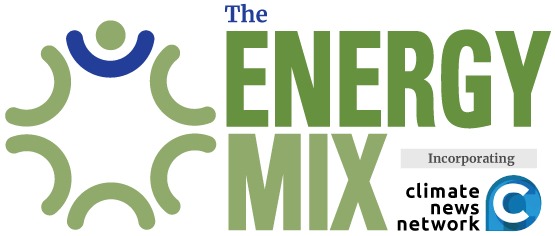UPDATE: Trump Blinks in Earth Day Assault on U.S. Climate Non-Profits
Hours after this story was published April 22, a major U.S. newspaper said the Trump administration was not considering an attack on U.S. climate organizations’ non-profit tax status, despite widespread reports to that effect.
“The White House is not drafting or considering an order targeting non-profit organizations’ tax-exempt status,” Politico reported, citing White House sources. “The comments come after rumours swirled in energy and environmental policy groups in recent days that President Donald Trump might attempt to revoke green groups’ tax-exempt status, potentially on Earth Day.”
“No such orders are being drafted or considered at this time,” a White House official told E&E News in an email.
In the lead up to Earth Day, U.S. environmental organizations were planning protests ahead of Earth Day as they braced for Trump executive orders that could strip their tax-exempt status.
“It was perhaps inevitable that Trump and his team would target us; together we’ve been making life harder for his clients in the fossil fuel industry,” climate activist Bill McKibben, co-founder of 350.org, wrote in a newsletter.
Trump has also threatened to revoke the tax-exempt status of institutions like Harvard University and freeze more than US$2.2 billion worth of grants and contracts, part of a broader campaign to pressure universities over their hiring practices and governance. Harvard, the country’s oldest university and an emerging “symbol of defiance” against the White House, is now suing the Trump administration to halt the funding freeze, reported CNN.
The Trump administration is expected to turn its attention to the tax-exempt status of environmental non-profits next. According to Tenenbaum Law Group, rumors suggest the action would take form as an executive order to “redefine” the Internal Revenue Service’s (IRS) qualifications for the 501(c)(3) tax-exempt status “in a way that excludes conservation and climate non-profits.”
Such a move would be legally dubious. Tax exemption can be withdrawn if an organization is involved in lobbying or participating in political activity, which is the charge Trump levelled at Harvard, and which could be directed to environmental organizations.
But Tenenbaum Law explains that “there simply is no lawful mechanism for the President, IRS, or others in the Trump administration to revoke the tax-exempt status” of a non-profit without following a longstanding process, which begins with an audit if the IRS questions an organization’s status. The audit is followed by an examination that can result in the organization’s status being upheld—with or without conditions—or in a proposed revocation that can be contested within 30 days.
The IRS is supposed to remain politically neutral, but U.S. lawmakers have already raised concerns that tax exemption could be weaponized by political leaders. A measure advanced last year in the House of Representatives would give the Treasury Department powers to revoke tax-exempt status, reports Bloomberg.
That specific action is but one among several that could affect environmental groups. Other attacks from the administration could involve investigations of an organization’s activities or changes that could stifle funding for non-U.S. organizations treated as charities.
A group of non-profits is preparing a collective response. A sign-on letter was circulating among non-profits in advance of Earth Day, and demonstrations are being organized across the country against a political agenda that targets environmental protections and the climate legacy of Trump’s predecessor, Joe Biden. Earlier this month, Trump directed Attorney General Pam Bondi to identify and take legal action against state laws that fine oil and gas companies for emissions. Another recent action halted development of the Empire Wind Project off the New York coast.
However, advocates saw a legal victory last week, when a federal judge ordered the U.S. administration to unfreeze billions of dollars meant to finance climate and infrastructure projects. The ruling declared the freeze “arbitrary and capricious”, adding that federal agencies halting the payments did not have powers to do so, reported the Associated Press.
“Agencies do not have unlimited authority to further a President’s agenda, nor do they have unfettered power to hamstring in perpetuity two statutes passed by Congress during the previous administration,” U.S. District Judge Mary McElroy wrote in her decision.
Cover photo: By The Energy Mix



